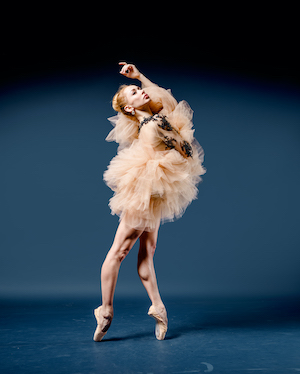DeNada Dance Theatre, lead by ground-breaking choreographer Carlos Pons Guerra, is one of the best revelations of the last few years and one of the most promising dance companies in England. TORO: Beauty and the Bull is an absolute triumph of transforming characters, incredible dancing skills and intense theatrical expressivity that left me speechless.
Partly inspired by fairy tales and the image of what society consider as monstrous, in TORO, Carlos Pons Guerra embarks in a courageous showcase of domineering behaviour, seduction and love, entwined with allusions to homosexuality, transgender, voguing culture and colonisation. All themes converge to deliver a picture of the oppressed minorities that used to be identified as monsters or unnatural creatures – figures that can be seductive and attractive, and make you realise who the real monster is.

TORO opens with a girl lying unconscious on the floor (Emma Walker); her body is pulled and dragged by two men in the attempt to take possession of her. The action is hectic and mainly comic as they engage in a demonstration of strength and virility, executing push-ups and fighting, as if only that showing off were enough to seduce a woman.
A bull-like character is introduced to the stage, immediately encircled, pushed around and mistreated like an outcast. A sort of corrida takes place with Marivi Da Silva dramatically fighting with all her strength, pointing the horns at the matadors and attacking with audacious power and vitality. Leather harness and muzzle adorn her costume – elements of oppression that will reappear later with the Dragimals (animals in drag). It’s impressive how Marivi’s expressions can convey a real sense of brutality and abuse, bearing the suffering of all the oppressed minorities.

The duets between the girl and the bull are particularly absorbing. The emotional charge evolves during the performance – we first see them in some sort of attraction vs. repulsion engagement, with seductive gestures full of humanity, while in the second part the scene becomes more passionate, with displays of love and overwhelming sexual desire.
Another standout passage is the Dragimals dance opening the second section of TORO. Their moves, inspired by voguing, showcase the exceptional physical explosiveness of the four male dancers (Michael Barnes, Nicholas Tredrea, Jonathon Luke Baker, Jason Tucker), who deftly transform into different characters throughout the piece – men, dragimals, and matadors. Wiggling hips, turns and arabesque alternate with hectic floor work, they exaggerate each movement with graceful flexibility. Towards the end we see the matadors forcing the girl into a marriage and defeating the bull, a sad epilogue that sheds light on the real monsters that oppress, harass and colonise.

DeNada Dance Theatre appeared at the Lilian Baylis Studio in November 2017 with O Maria, as part of Wild Card curated by Gianluca Vincentini (read our review here) and was nominated in 2016 for Best Independent Company by the UK Critics’ National Dance Award.
Reviewed at Lilian Baylis Studio at Sadler’s Wells on 25 April


